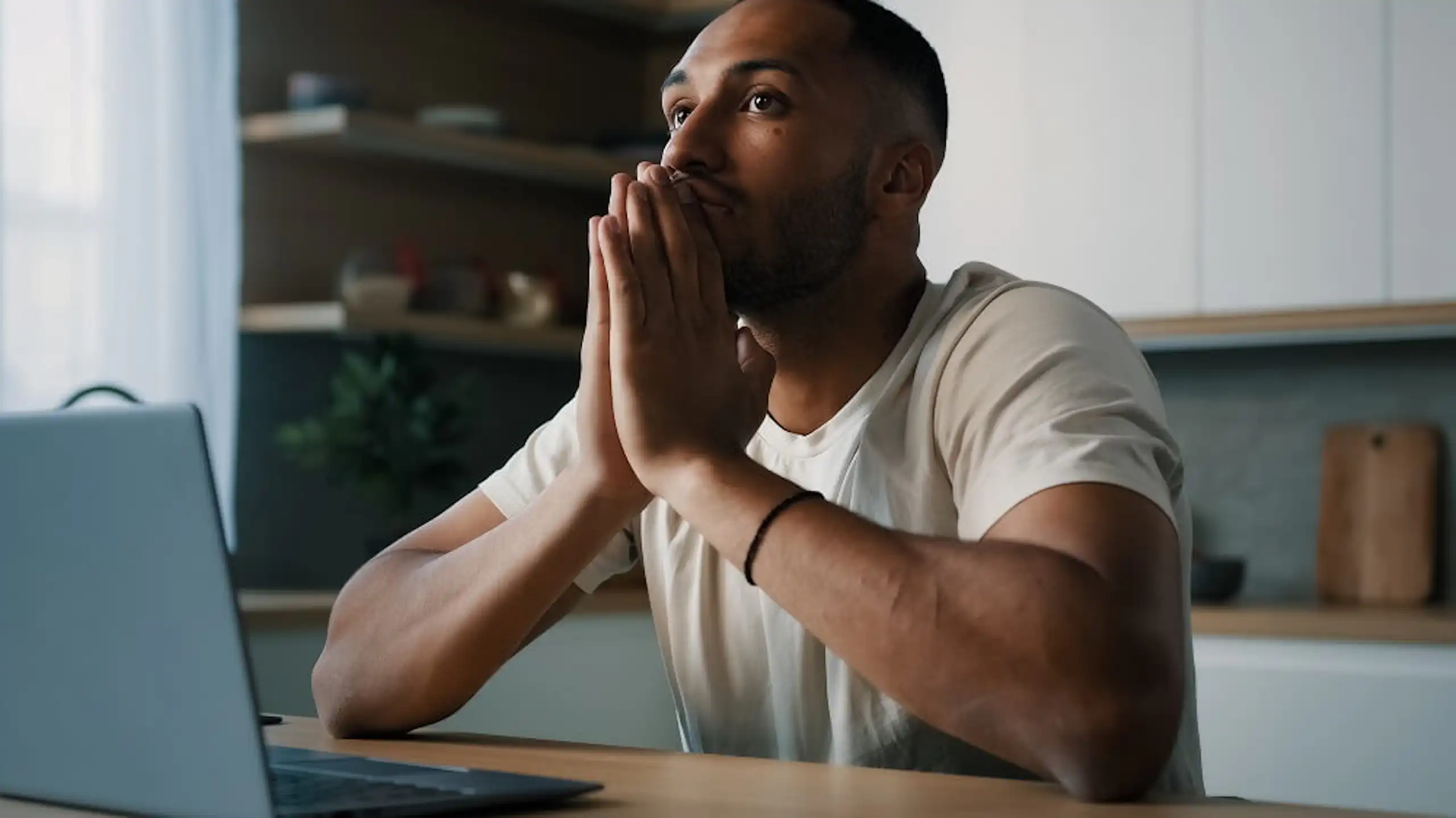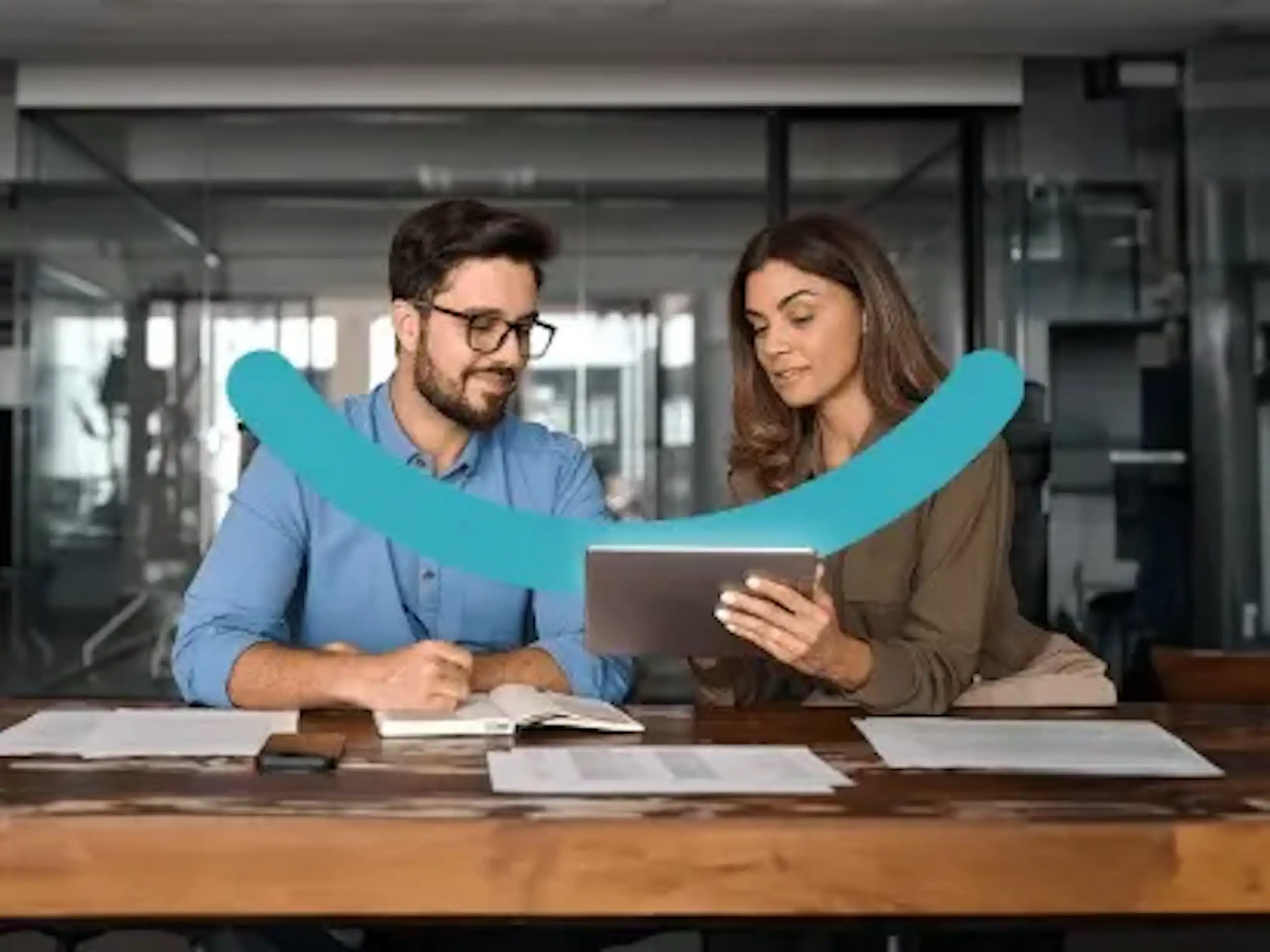General Anxiety Disorder (GAD) is the diagnosis given when feelings of anxiety start to interfere with day-to-day life. It’s one of the most common mental health issues across the UK
Anxiety is a feeling of uneasiness or worry that's usually underlined by a sense of fear, which can fluctuate from mild to severe. If you’re experiencing anxiety regularly, know that you’re not alone. In this article, we’ll be looking at the topic in more detail, including tips you can use to help you reduce anxiety.
How do I know if I have Generalised Anxiety Disorder?
If you’re experiencing anxiety daily, and it’s interfering with things you’re doing each day like your job, relationships or social activities, it could be a sign of Generalised Anxiety Disorder.
If you've got any concerns, the best thing you can do is speak to your GP, or if you have an Assistance Programme with HA | Wisdom Wellbeing, you can call us too.
By asking some brief questions, a clinical professional can guide you, tell you more about the feelings you're experiencing and walk you through potential next steps.
What can I do to improve my anxiety?
Life with anxiety can be extremely draining, physically exhausting and scary. It can feel like all you want to do is make it go away and never come back. But counterintuitively as it might seem, one of the best things you can do is acknowledge where you’re at and how you’re feeling.
Once you see that you’re facing some challenges right now—and you’re in a difficult place, you can start taking small steps to get to where you want to be.
Therapy can be a huge help if you find that anxiety interferes with your ability to cope with life’s demands. Whether talking therapy or Cognitive Behavioural Therapy, these interventions can help you identify your triggers, work through your emotions with someone you trust and find more peace in helpful thinking patterns.
Medication is another available treatment option often used to help ease the symptoms of GAD. Different medication options are available, so you’ll need to speak to your doctor about the best options for you.
Related article: How do you overcome health anxiety?
How can I reduce anxiety?
Unfortunately, when it comes to managing anxiety, there’s no one size fits all solution. So more often than not, it falls to each individual person to work out what helps, what hinders and how they can move forward; this can often be a process of trial and error that involves trying different things until you find a routine that works for you. Below, you can find some techniques that can help reduce anxiety in your life.
Slow down
In today’s world of endless newsfeeds, instant deliveries and success-driven culture, it can feel hard to hit the pause button. But the frantic energy that arises from a jam-packed schedule can elevate your stress levels and heart rate, which makes fertile soil for the seeds of anxiety to grow.
When you slow down the pace of everything you do, your ability to think clearly increases, and your mental chatter quietens, whether that be your walking speed, daily schedule, or your breath.
Focus on your needs
Anxiety can get worse when you don’t consider your own needs. The feelings you’re experiencing could be an indicator that you need some self-focus. Are you taking care of your basic health needs by drinking enough water, eating a balanced diet and getting enough sleep? Take care of the basics before you look towards anything else.
Is this in my control?
A magic question to keep in the tool bank for anyone who might be struggling with anxiety. If that’s you, you’ll know you can spend hours stuck, ruminating on thoughts, going around in circles, and ending up right where you started.
If you find yourself caught in this loop, the first step is to recognise you’ve lost your way and remember—that’s okay, it’s what the mind does. But then, ask yourself, is this in my control? If the answer is no, you’ll have the green light to give yourself a break and try to let go of the negative thinking patterns. And if the answer is yes, try writing down a plan of how best to do it. Taking action is another great method for combating anxiety.
Acceptance
Anxiety can go hand in hand with negative self-talk and condemning yourself for feeling this way. But these negative thoughts about the situation can be a big barrier to making progress. Instead of trying to resist how you’re feeling, try to bring acceptance to where you’re at. You didn’t choose to feel this way—and it isn’t your fault that you are struggling.
Try to have some compassion for where you are right now and be patient with yourself. Showing kindness towards yourself in this way will allow you the headspace to start taking positive action.
Tell others
Opening up to others about how you're feeling can be daunting, especially if you don’t do it very often. But telling others takes the pressure off. It means you don’t have to bottle up your emotions, and you can start receiving support from others around you. Once this barrier breaks down, it can make communicating with others about your feelings easier, allowing you to process what you’re experiencing right now.
Breathe
Anxiety is also known as the fight or flight response, and this response is associated with the brain and the nervous system. When GAD occurs, the fight or flight response is often triggered regularly; this is why breathing techniques can be so beneficial. Plus, you can do them anywhere, and they're absolutely free.
If you're interested in trying this technique, read our blog to find breathing exercises to relieve stress.
Related article: Managing someone with anxiety at work
Help with Anxiety from HA | Wisdom Wellbeing
The above tips are not an exhaustive list and we know for many people struggling with anxiety, this will only be the start. But we hope that this provides some tools to help you on your journey.
Remember that if you do have an Employee Assistance Programme (EAP) with us, our counsellors are here to provide a safe, confidential space to help you work through your anxiety. You can also use our Wisdom App for regular tips and advice on managing your overall mental wellbeing.











